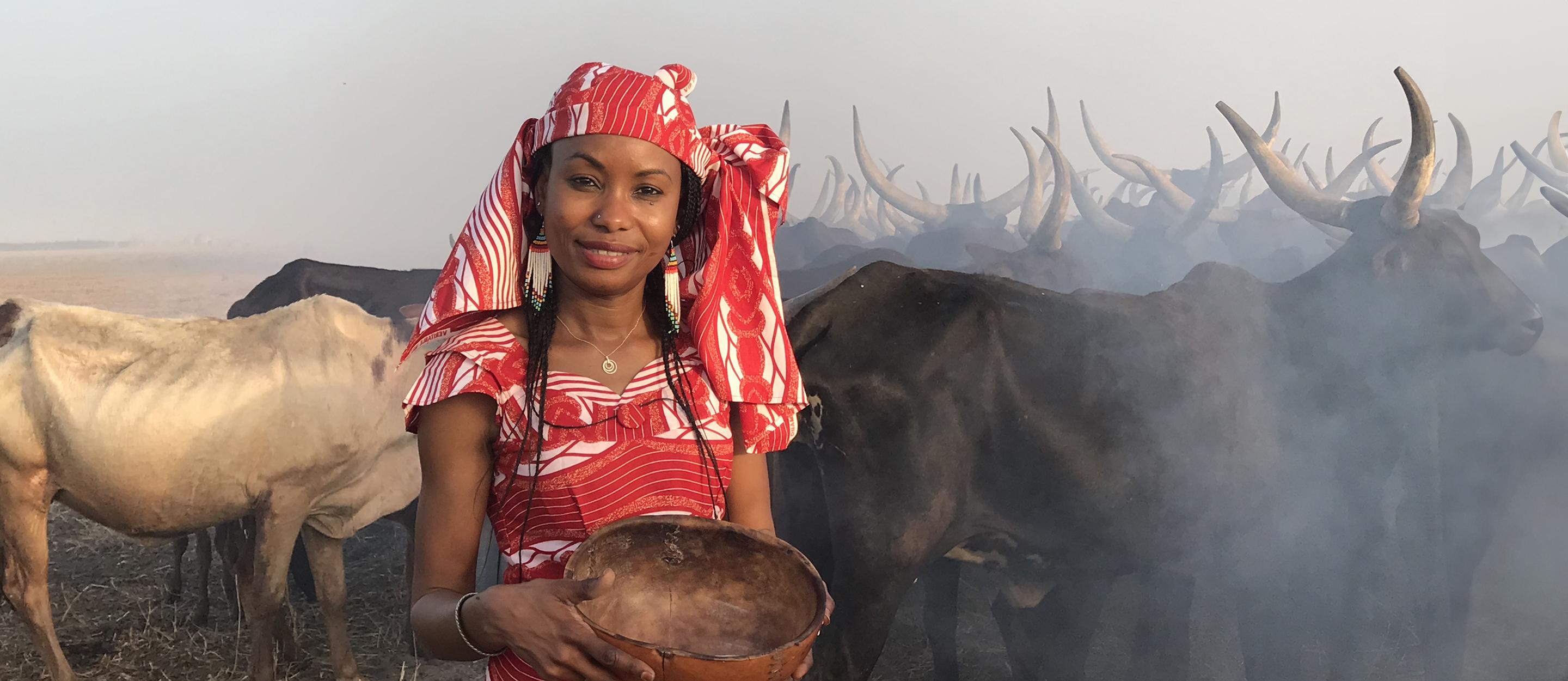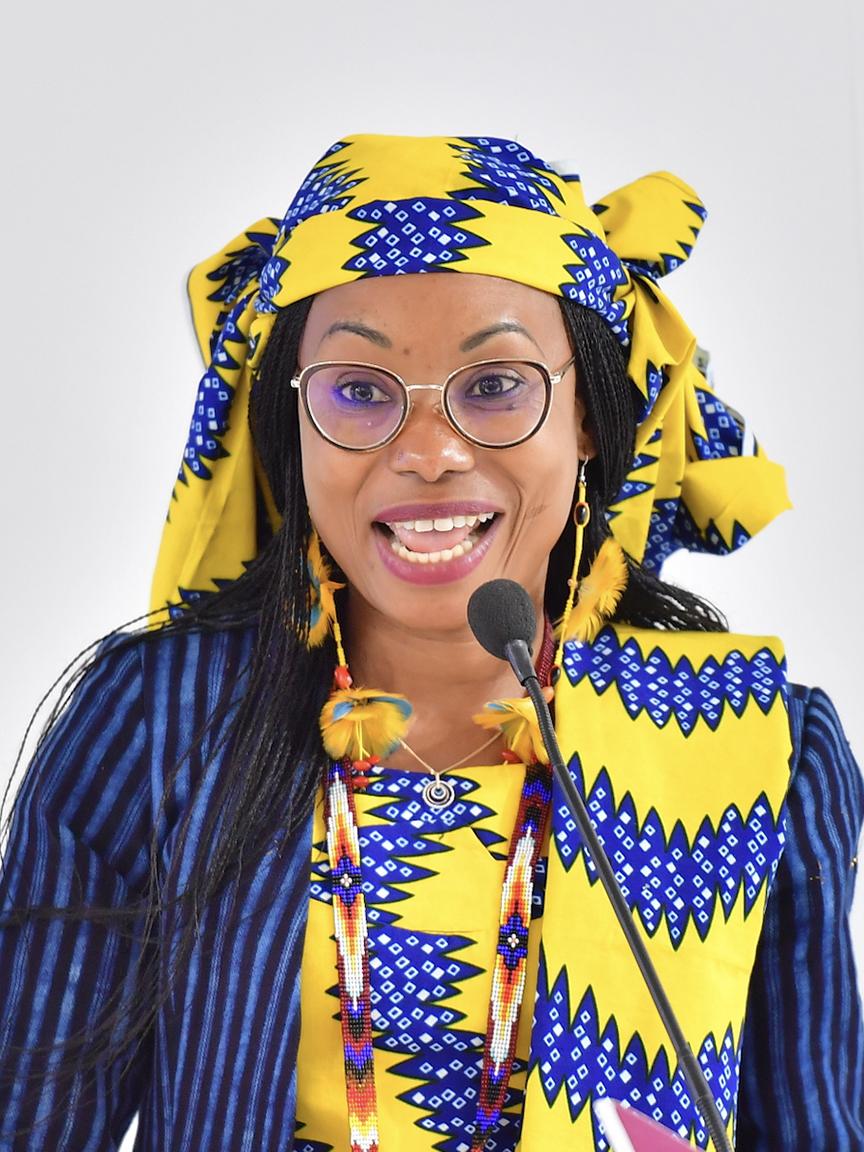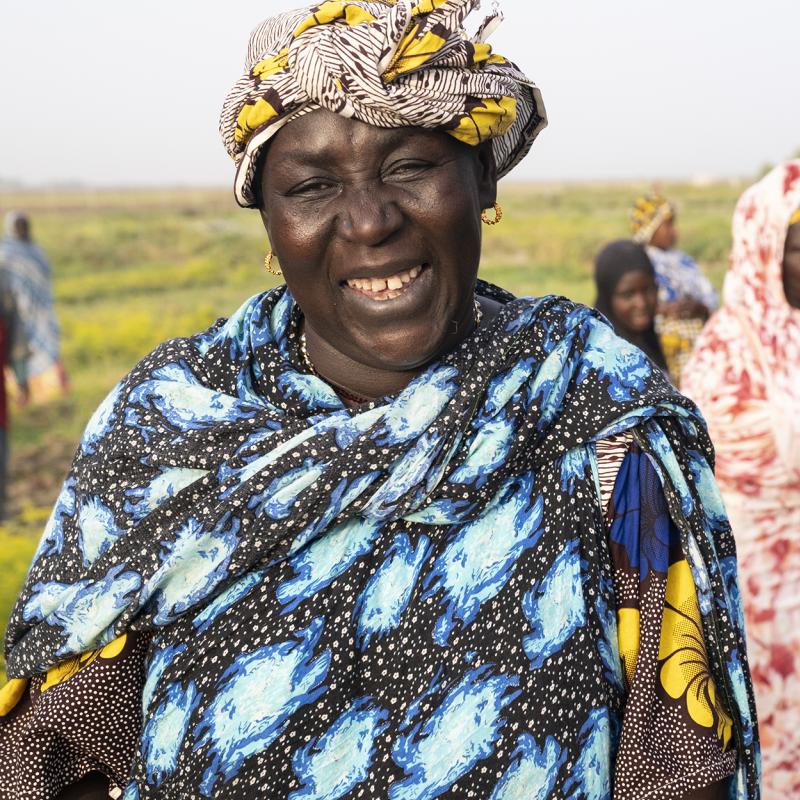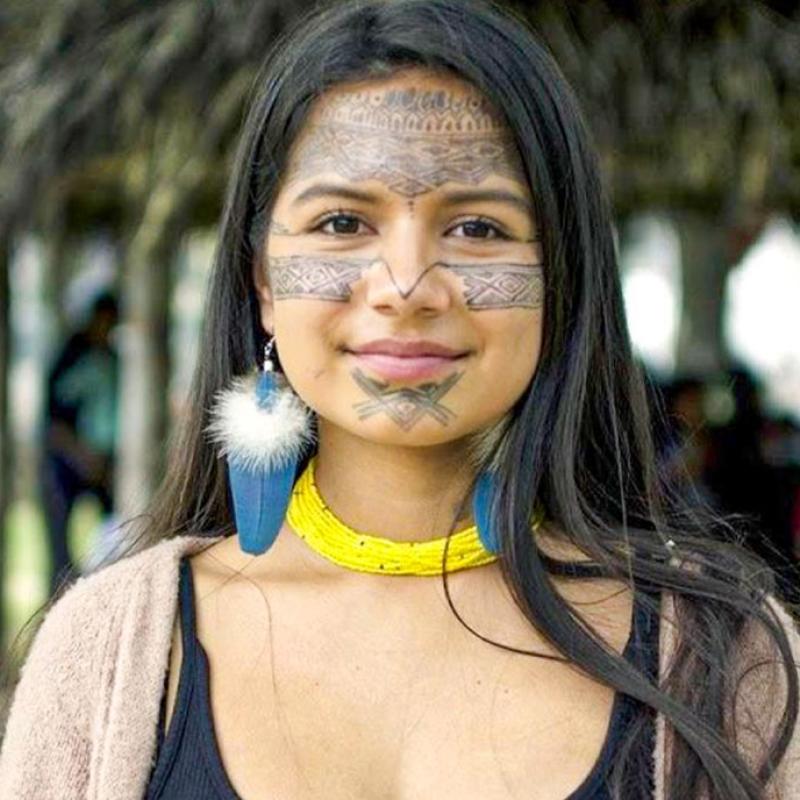is an African civil rights activist. She was born in 1984 as part of the indigenous nomadic Mbororo community in Chad. As a representative of indigenous people, she regularly attends international conferences in order to make indigenous peoples heard by international decision-making bodies. Ibrahim is an expert in assisting indigenous peoples in adapting to climate change and develops climate adaptation strategies together with local communities. As coordinator of the Association for Fulbe Women and Indigenous Peoples of Chad (AFPAT), she also campaigns for human rights.
 privat
privat
‘We are the guardians of nature’
Human rights activist Hindou Oumarou Ibrahim from Chad applies indigenous knowledge to fight the impacts of climate change. She uses cartography to resolve conflicts over vital resources.
Ms Ibrahim, Chad is one of the countries hardest hit by climate change to date. How do these impacts manifest themselves and what conflicts are associated with them?
We have been having extreme weather events in Chad for several years now. Sometimes we have extreme floods, followed then by extreme droughts. The average temperature in Chad has already risen by 1.5 degrees compared to pre-industrial times. This extreme weather has a major impact on people’s lives and especially on agriculture.
Resources such as arable land, pastures and water are constantly in decline. As a result, conflicts are increasing. There are more and more fights over the few remaining resources. Poverty in society is growing and this is ideal for fostering the ideologies of terrorist organisations such as Boko Haram.
The increasing conflicts are forcing more and more people to migrate, both within the country and to neighbouring countries or Europe. This is changing society in Chad. There are more and more single women here whose husbands have left the country to earn money for the family elsewhere.
What methods are you using to fight the impacts of climate change in your country?
One of our projects concerns community mapping. In southern Chad, we are working on maps of the region where we list resources and consider who has access to these resources and to what extent. To do so, we use geographical data, scientific findings and the knowledge of local communities. The organisation EOS Data Analytics from Ukraine provides us with satellite images, which I print out and take with me to the villages. There, I create the maps together with locals. We determine who can access which resource at what time, establish corridors for livestock farming, for example, and designate arable land and protected areas.
How do you integrate indigenous knowledge into the process?
We observe nature – our animals and plants. We have known our environment for centuries and knowledge on environmental change has been passed down through generations. This means we can obtain information from nature that scientists or meteorologists are unaware of. For example, this enables us to make very accurate weather forecasts and warn local communities about extreme weather events. Our lives might depend on how the weather develops. That’s why we draw on indigenous knowledge to make the most accurate predictions possible.
How can the international community work better with indigenous communities to develop effective climate change mitigation strategies?
It is important to involve us right from the start in every discussion and in every activity. We are the guardians of nature and we possess an enormous amount of knowledge about our environment. This knowledge is not theoretical; it has been tried and tested for centuries. It is therefore important in terms of sustainability to incorporate our knowledge into climate change mitigation strategies.
Indigenous people are already the ones most affected by climate change because nature provides our food and we live in harmony with it. In addition, many coveted minerals and metals can be found on the land of indigenous peoples. That’s why it is important to recognise our rights and protect our habitat.
And how is it in reality?
In reality, we don’t make the decisions. The international community thinks we are observers and makes decisions without involving us. But we are neither observers nor lobbyists. We have rights and the international community must finally recognise them. International stakeholders are currently talking about us, but not with us. That’s the reality and it’s frustrating.
What motivates you to keep going with your work?
Indigenous peoples around the world are fighting the impacts of climate change using traditional methods. I view it as my task to encourage the international community to listen to the voices of these people. The world must heed indigenous people when it comes to climate change mitigation and environmental protection measures. That’s my goal and that is what drives me.
 privat
privat
Hindou Oumarou Ibrahim, African civil rights activist

